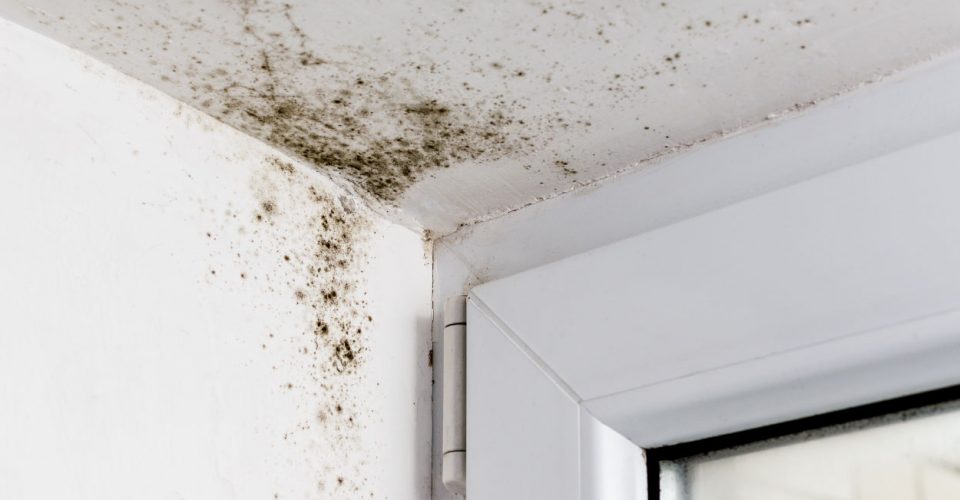Preventing Mould Around Your Windows
Window mould is a nuisance that many homeowners dread. Apart from being unsightly, mould can have detrimental effects on health, including triggering allergic reactions and respiratory problems. This makes mould prevention and eradication a priority for everyone. Here’s a detailed guide with critical steps to help you keep your windows mould-free.

Understanding the Nature of Mould
Before diving into prevention strategies, it’s helpful to understand what mould is and why it grows in certain conditions. Mould is a type of fungus that thrives in environments with high moisture and low ventilation. It reproduces by releasing microscopic spores that can linger in the air, causing various health problems when inhaled.
Windows are a common place for mould to appear because they are often subject to condensation. This occurs when warm air (inside the house) meets the cold surface of the window (due to outside weather), leading to water droplets forming on the window surface. This condensation can provide the moisture that mould needs to grow.
The Importance of Proper Ventilation
Ventilation is a key factor in preventing mould growth around windows. Mould thrives in damp, poorly ventilated spaces, which can be common in modern homes due to their airtight construction for energy efficiency. However, this lack of air circulation can lead to mould-friendly conditions.
To enhance ventilation in your home, make it a habit to open windows daily, allowing fresh air to circulate. In areas prone to high humidity, such as the kitchen and bathroom, consider installing extractor fans. This can dramatically help reduce the concentration of moist air, minimising the likelihood of mould growth.
Dehumidifiers as a Line of Defence
In addition to improving ventilation, using a dehumidifier can be a powerful tool in your fight against mould. These devices work by removing excess moisture from the air, reducing the overall humidity level in your home. This makes the environment less inviting for mould. Dehumidifiers are particularly useful in damp climates or during seasons when rain is frequent.
Importance of Regular Cleaning
A cleaning regimen is vital for keeping your windows mould-free. It’s advisable to clean your windows and window sills with a general household cleaner at least once a month. Pay particular attention to corners and crevices, as these areas can often be overlooked and provide a perfect hiding place for mould.
For added mould prevention, you may want to use a mould-killing product. There are various types on the market, from sprays to wipes, so choose one that best fits your needs. Remember, it’s essential to dry the area thoroughly after cleaning, as leaving excess moisture can counteract your efforts.
Insulating Your Windows
Proper window insulation plays a key role in preventing condensation, thereby reducing the likelihood of mould growth. If your windows aren’t properly insulated, they may be prone to condensation, providing the moisture that mould needs to grow.
Consider upgrading to double-glazed windows, which provide better insulation and help prevent condensation. Alternatively, adding window insulation film can also be effective.
Beyond the windows themselves, you can insulate your home to keep the interior temperature more constant, reducing the formation of condensation on windows during colder months.
Fixing Leaks
Water leakage is a mould’s best friend. Regularly check for any signs of leaks around your windows. If you find any, fix them as soon as possible. A small leak might not seem like a big deal, but over time, the accumulated moisture can lead to significant mould growth.
Using Mould-Resistant Paint
When painting your window frames, consider using mould-resistant paint. This specialised type of paint contains antimicrobial ingredients that hinder mould growth. Even though it might be a bit more expensive than regular paint, the added protection it provides against mould makes it a worthwhile investment.
Monitoring Indoor Plants
While indoor plants can contribute to a healthy and pleasing living environment, they can also inadvertently contribute to higher humidity levels in your home. This can be especially true if you tend to overwater your plants. Be mindful of your watering habits and consider moving plants away from windows if you notice recurrent mould issues.
When to Seek Professional Help
Even with preventative measures, mould can sometimes become established and stubborn to remove. If you’re dealing with a significant mould infestation, or if you’re sensitive to mould and its spores, consider seeking professional help. Professional mould cleaning services or mould specialists have the expertise and tools to effectively handle larger infestations. They can safely remove mould, mitigate its spread, and provide guidance to prevent future growth.
Wrapping Up
Preventing mould around your windows is a multi-faceted task involving regular home maintenance, proper ventilation, and moisture control. By following these comprehensive tips, you can keep your windows clean and mould-free, contributing to a healthier living environment. However, remember that substantial or persistent mould problems may require professional intervention. Always prioritise your health and the safety of your living space above all.

